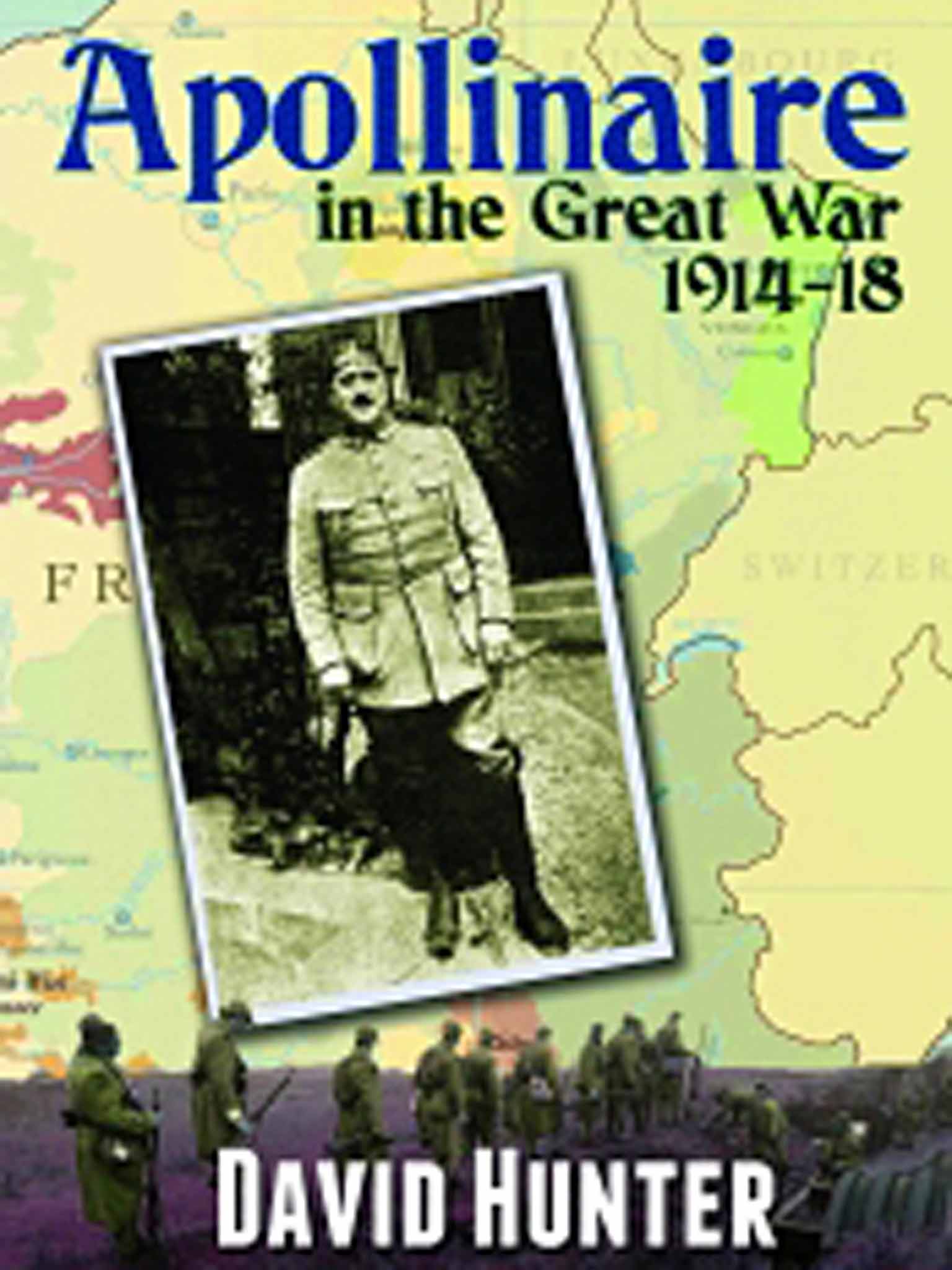Apollinaire in the Great War 1914-1918 by David Hunter: The Surrealist soldier who found solace in eroticism
An engrossing combination of military history, biography and cultural analysis

In 1914, the French poet Guillaume Apollinaire was 34, a major literary figure and a darling of the avant-garde who most people knew for his alleged involvement along with Pablo Picasso in the bizarre theft of the Mona Lisa by a Louvre employee.
Yet even though he wasn't really French – his name was Wilhelm de Kostrowitzky, born in Rome of an unknown father and a Polish mother – he sought to enlist and fight for his adopted country as soon as war broke out. As David Hunter points out, this may have been because Apollinaire and many of his fellow artists in Paris did not see Germany just as a war-like military power but as a culture that seemed antithetical to all they admired.
His first attempts to join up failed, but he found solace in the first of the three great loves of the remainder of his relatively short life. Louise de Coligny, known as Loulou, was a divorcee from an illustrious family. They hit it off immediately, and she became the recipient of more than 200 of his letters and poems
By December 1914, he managed to enlist as an artilleryman. He found army life difficult but his status as poet made him something of a celebrity with his comrades and senior officers.
His consolation was the avalanche of letters to and from Loulou, which became increasingly fevered as the months passed. So carnal, in fact ("It's your buttocks I want to horsewhip"), that even the sexually liberated Loulou felt the need to reproach him for having developed "a taste for vice". The passion in his poetry was less violent but often more avant-garde. He would send her what he called picture poems, short verses in the shape of a fig, a carnation or even an opium pipe.
By 1915 he had been moved to the front at Champagne and met Madeleine Pagès, a 22-year-old would-be poet. She was overwhelmed to meet a published poet. As the affair with Loulou cooled, the correspondence with Madeleine developed. There was an exchange of letters, Hunter says, that were startling in their "intensity and explicitness". It seemed that while British war poets found an escape from the war in pastoralism, Apollinaire found solace in eroticism.
Inevitably this relationship cooled too. In 1916 he was injured by a shell fragment and eventually excused from frontline service. He met and married Jacqueline "La jolie rousse" (the pretty redhead) in 1918 and published his most important collection of poems, Calligrammes, the same year.
Hunter's book is an engrossing combination of military history, biography and cultural analysis that offers a lucid portrait of an artist in both love and war.
Subscribe to Independent Premium to bookmark this article
Want to bookmark your favourite articles and stories to read or reference later? Start your Independent Premium subscription today.

Join our commenting forum
Join thought-provoking conversations, follow other Independent readers and see their replies